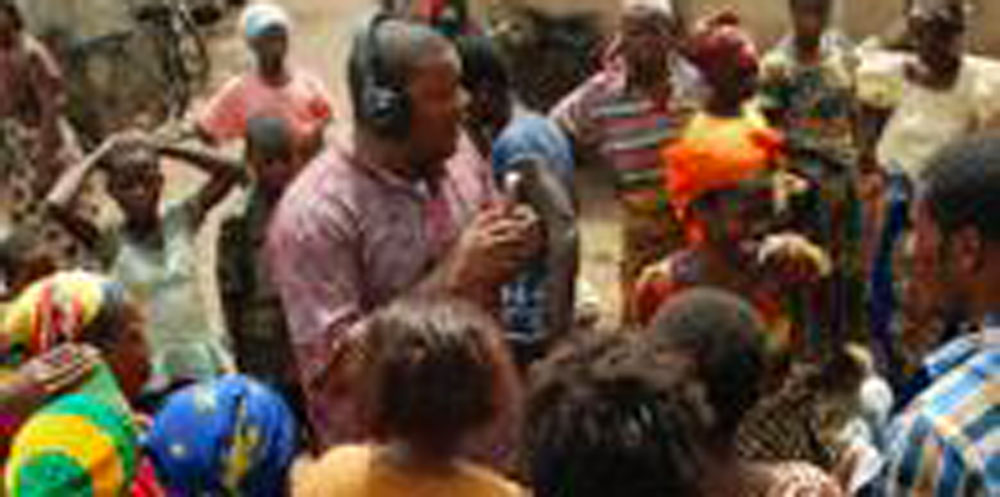
About the Project
This project is one of the 2010 WISE Awards winners.
This project is also featured in the WISE Book ‘Learning a Living‘
Context and Issue
Over 70 percent of Nigeria’s population of 150 million live and work in rural areas. The vast majority of the rural population depends on agriculture for their incomes. Due to an underdeveloped communication infrastructure
in Nigeria, few farmers, however, have access to high quality, current information on natural resource management. Energy and power supplies are inconsistent and unreliable, with many rural communities living off the grid. Internet access too is sparse, and often does not reach rural, marginalized farmer communities. Similarly, agricultural and forestry extension services which normally deliver valuable natural resource management information to rural farmers have collapsed in recent years. This has resulted in an information gap between emerging knowledge, lessons learned and guidance on sustainable farming and natural resource management and rural farmers. Small farmers lack access to information on sustainable environmental management techniques and farming methods to ensure steady supplies to the market. The result has been environmental degradation, a deepening of poverty, and accelerated food insecurity. Cut off from crucial information systems, small farmers are unable to boost their agricultural yields or their incomes.
Solution and Impact
- Designing and broadcasting of educational radio programs
- Establishment of state-wide rural radios stations
- Organization of small farmers into radio listener clubs
- Establishment of school gardens
- Extension services for field demonstrations.
The educational radio programs cover erosion and flooding control, farm and household management, food safety, nutrition, HIV/AIDS, agriculture, combating malaria and farm safety. They also deal with such topics as application of fertilizers, pesticides and insecticides; rainwater harvesting; treadle pumps; and small scale irrigation management. Illiterate small farmers learn about methods for accessing hybrid seeds, reaching national and international markets, export documentation, and accessing finance and microcredit facilities. A question and answer service replies to questions sent in by farmers and allows them to share experiences with one another. The station also helps poor farmers by broadcasting information on basic business skills such as market research, cost-benefit analysis, business planning, opening bank accounts, and keeping accurate accounts and store records.
The programs help smallholders decide what, when and how to produce crops, and who they should produce them for. They have access to daily commodity prices to help them decide which market to go to and when, and, thanks to information on the export process, they are already tapping into the international market. The household income of 65% of the station’s listeners has risen, and they have increased their crop output. The educational programs have also helped reduce soil degradation and conserve wood resources.


